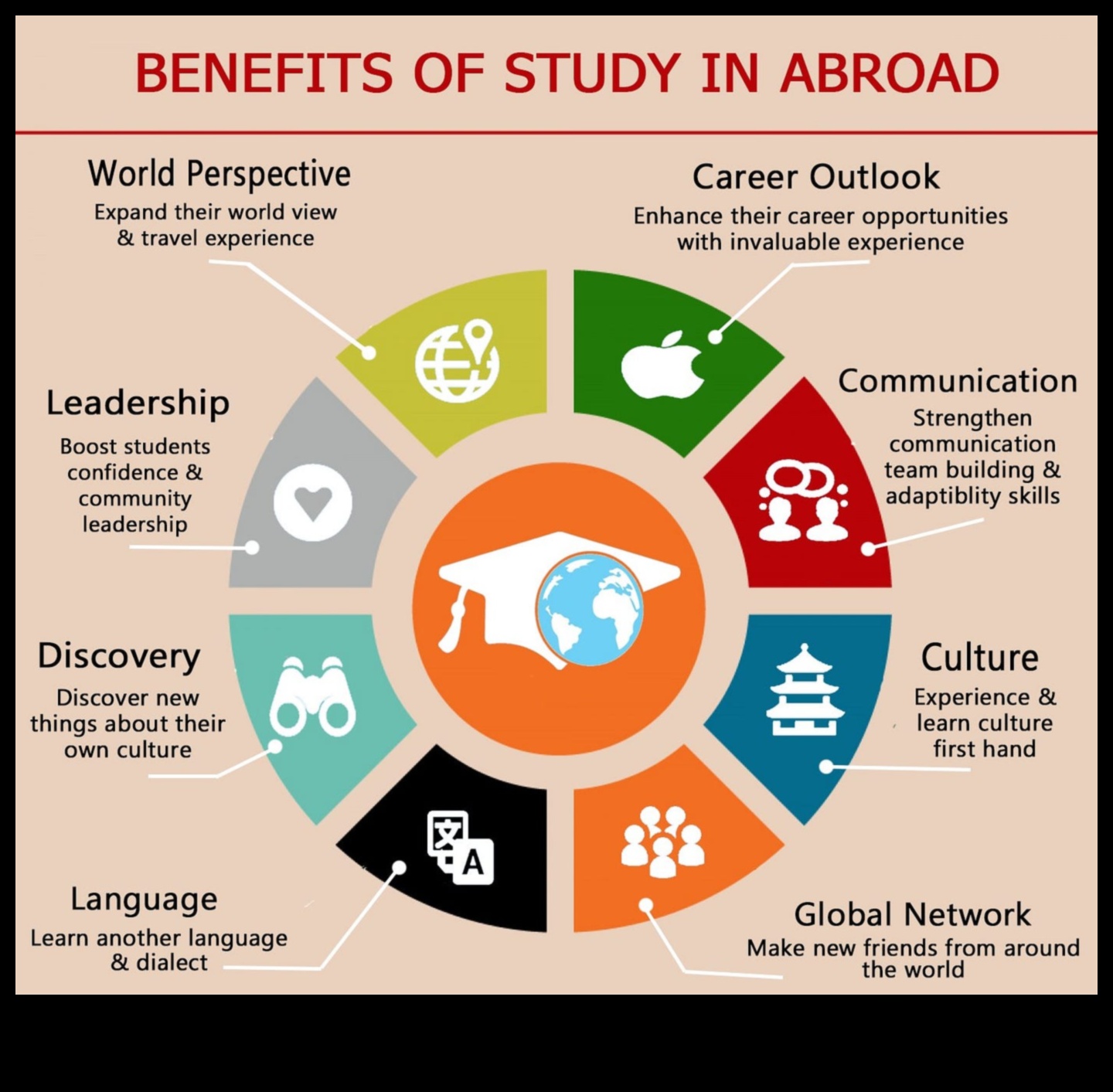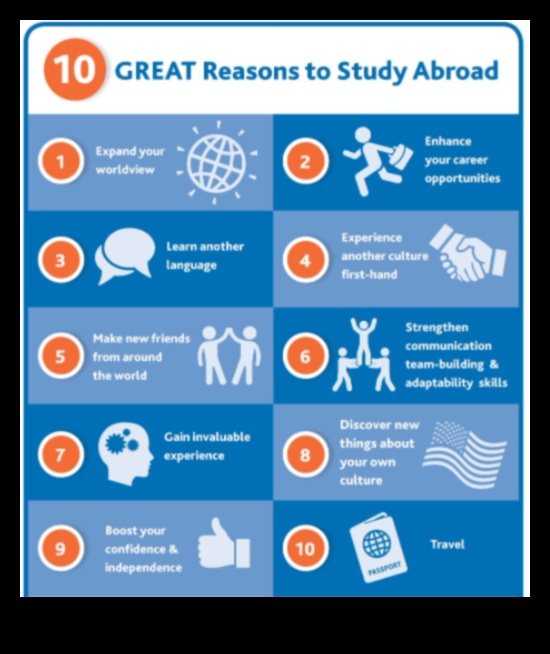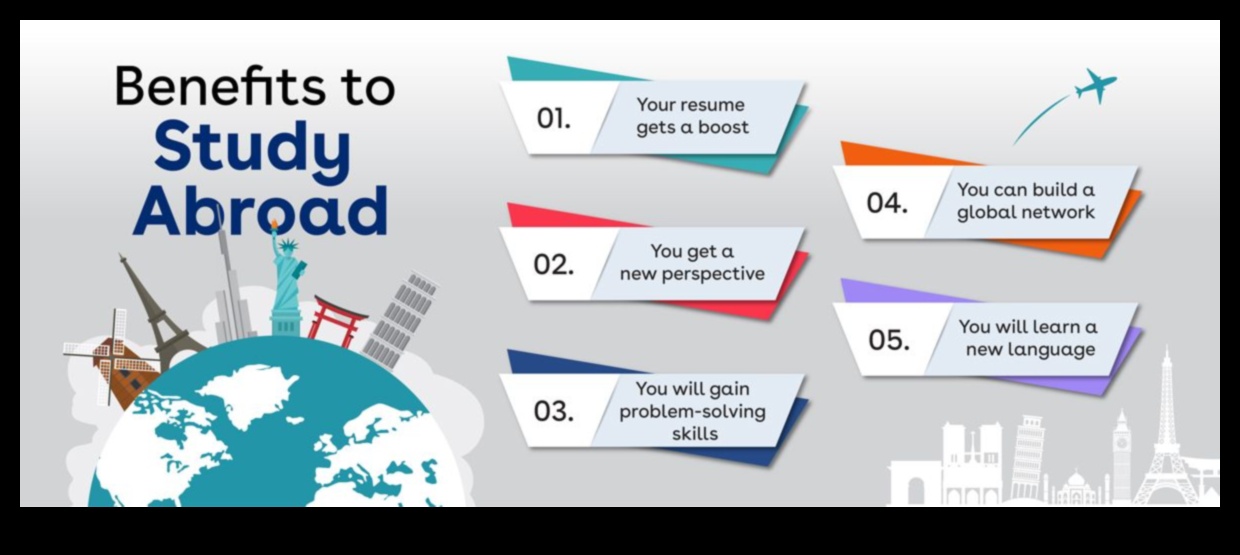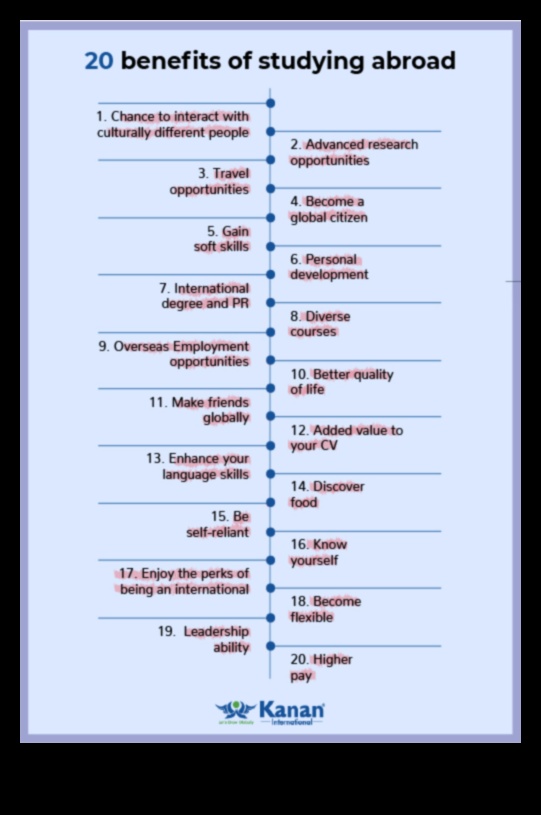
Is Study Abroad Worth It?
Study abroad is a great way to learn about a new culture, improve your language skills, and expand your horizons. However, it can also be a significant investment of time and money. So, is study abroad worth it?
There are many factors to consider when making this decision, such as your budget, your academic goals, and your interests. However, in general, study abroad can be a very rewarding experience that can have a positive impact on your life.
Here are some of the benefits of studying abroad:
- Improved language skills
- Cultural immersion
- Expanded horizons
- Increased career opportunities
- Personal growth
Of course, there are also some costs associated with studying abroad, such as tuition, travel, and living expenses. However, these costs can often be offset by financial aid and scholarships.
Ultimately, the decision of whether or not to study abroad is a personal one. However, if you are considering studying abroad, it is important to weigh the benefits and costs carefully to make sure that it is the right decision for you.
For more information on studying abroad, please visit the following websites:
| Feature | Description |
|---|---|
| Study abroad cost | The cost of studying abroad can vary significantly depending on the program, the country, and the length of stay. However, it is important to factor in all of the costs, including tuition, airfare, housing, food, and travel. |
| Study abroad benefits | There are many benefits to studying abroad, including: |
| Study abroad experience | Studying abroad can be a life-changing experience. It can provide you with the opportunity to: |
| Study abroad scholarships | There are a number of scholarships available to help students study abroad. These scholarships can be awarded based on academic merit, financial need, or a combination of both. |

II. Benefits of studying abroad
There are many benefits to studying abroad, including:
- Improving your language skills
- Experiencing a new culture
- Expanding your horizons
- Gaining a global perspective
- Making new friends from all over the world
- Developing new skills and perspectives
- Building your confidence
- Preparing for your future career
Studying abroad can be a life-changing experience that will benefit you in many ways. If you are considering studying abroad, I encourage you to do your research and find a program that is right for you. It will be an experience that you will never forget.
How to choose a study abroad program
There are many factors to consider when choosing a study abroad program. Some of the most important factors include:
- Your budget
- Your academic interests
- Your desired location
- Your travel preferences
- Your desired length of stay
Once you have considered these factors, you can start narrowing down your options. There are a number of resources available to help you find a study abroad program that is right for you. You can search online, contact your school’s study abroad office, or talk to a travel agent.
When you are researching programs, be sure to read the program descriptions carefully and ask questions if you have any. It is important to make sure that the program is a good fit for your needs and interests.
Once you have found a few programs that you are interested in, you can start the application process. The application process for study abroad programs can vary, but it typically includes submitting an application form, providing transcripts and letters of recommendation, and paying a deposit.
If you are accepted to a study abroad program, you will need to start preparing for your trip. This includes getting your passport and visa, arranging for your travel, and packing your bags.
Studying abroad can be an amazing experience. It is a great opportunity to learn about a new culture, improve your language skills, and make lifelong friends. If you are considering studying abroad, be sure to do your research and choose a program that is right for you.
IV. Financial aid for study abroad
There are a number of financial aid options available for students who want to study abroad. These options include scholarships, grants, and loans.
Scholarships are awarded based on merit, financial need, or a combination of both. Grants are awarded based on financial need, and loans are borrowed money that must be repaid.
The amount of financial aid you receive will depend on your individual circumstances. Some factors that may affect the amount of aid you receive include your academic achievements, your financial need, and the cost of the study abroad program you want to attend.
To learn more about financial aid for study abroad, you can visit the following websites:

V. Applying for a study abroad program
Applying for a study abroad program can be a daunting task, but it is important to remember that there are many resources available to help you along the way. The following tips can help you make the process as smooth as possible:
- Start early. The application process for study abroad programs can take several months, so it is important to start early.
- Do your research. There are many different study abroad programs available, so it is important to do your research and find a program that is right for you.
- Write a strong personal statement. Your personal statement is an important part of your application, so take time to write a strong one that highlights your reasons for wanting to study abroad.
- Get good grades. Your grades are important for most study abroad programs, so make sure to keep your grades up.
- Prepare your finances. Studying abroad can be expensive, so it is important to prepare your finances well in advance.
- Get letters of recommendation. Letters of recommendation can be helpful for your application, so ask teachers, mentors, or other professionals who know you well to write letters of recommendation for you.
By following these tips, you can increase your chances of being accepted to a study abroad program. So what are you waiting for? Start your journey today!

VI. Preparing for your study abroad experience
Preparing for your study abroad experience is an important part of ensuring that you have a successful and enjoyable time. There are a number of things you can do to prepare, both before you leave and once you arrive at your destination.
Before you leave, you should:
- Get your passport and visa in order.
- Find out about the healthcare system in your study abroad destination.
- Make sure you have the necessary insurance coverage.
- Start learning the language of your study abroad destination.
- Pack your bags and get ready to go!
Once you arrive at your destination, you should:
- Find a place to live.
- Register for classes.
- Get involved in activities on campus.
- Meet new people and make friends.
- Explore your new city and country.
By following these tips, you can prepare for your study abroad experience and make the most of your time abroad.

VII. Arriving in your study abroad destination
When you arrive in your study abroad destination, you will likely be feeling a mix of emotions: excitement, nervousness, and maybe even a little bit of homesickness. It is important to remember that you are not alone and that many other students have gone through the same experience. Here are a few tips to help you make the most of your arrival:
- Take some time to relax. After a long journey, it is important to take some time to relax and get settled in. This could mean taking a nap, going for a walk, or spending some time exploring your new surroundings.
- Meet other students. One of the best ways to make friends and get involved in your new community is to meet other students. There are many ways to do this, such as joining a club or organization, attending a social event, or simply saying hello to someone in your class.
- Get involved in your new community. There are many ways to get involved in your new community, such as volunteering, joining a club or organization, or attending local events. Getting involved is a great way to learn about your new culture and meet new people.
- Don’t be afraid to ask for help. If you are feeling overwhelmed or homesick, don’t be afraid to ask for help. There are many resources available to you, such as your academic advisor, your program coordinator, or your host family.
Arriving in your study abroad destination can be a daunting experience, but it is also an exciting one. By following these tips, you can make the most of your arrival and start your study abroad experience off on the right foot.
Living and studying abroad
Living and studying abroad can be an amazing experience, but it can also be challenging. Here are some tips for making the most of your time abroad:
- Be open to new experiences.
- Embrace the culture of your host country.
- Make an effort to learn the language.
- Get involved in activities and events.
- Make friends with both locals and other international students.
- Be prepared for culture shock.
- Stay safe and healthy.
- Enjoy your time abroad!
IX. Returning home from your study abroad experience
Returning home from your study abroad experience can be a challenging experience. You may be feeling a variety of emotions, including excitement, sadness, and anxiety. It is important to take some time to adjust to being back home and to process your experiences. Here are some tips for returning home from your study abroad experience:
- Give yourself time to adjust. It may take some time to adjust to being back home and to your old routine. Be patient with yourself and allow yourself to feel whatever emotions you are feeling.
- Reconnect with your friends and family. It is important to reconnect with your friends and family who have been supporting you while you were abroad. They will be able to help you adjust to being back home.
- Talk about your experiences. It can be helpful to talk about your experiences with your friends, family, or therapist. This can help you process your experiences and to make sense of them.
- Keep in touch with your international friends. It is important to keep in touch with your international friends. This can help you stay connected to the world you experienced while abroad.
- Consider volunteering or taking classes. Volunteering or taking classes can be a great way to stay active and engaged in your community. It can also be a way to meet new people and make new friends.
Returning home from your study abroad experience can be a challenging experience, but it can also be a rewarding one. By taking some time to adjust and by processing your experiences, you can make the most of your return home.
X. FAQ
Q: What are the benefits of studying abroad?
A: There are many benefits to studying abroad, including:
- Improving your language skills
- Experiencing a new culture
- Expanding your horizons
- Meeting new people from all over the world
- Gaining a global perspective
Q: What are the costs of studying abroad?
The costs of studying abroad can vary depending on the program you choose, but some of the expenses you may need to consider include:
- Tuition and fees
- Airfare
- Accommodation
- Food
- Travel
Q: Is studying abroad worth it?
The answer to this question depends on your individual goals and financial situation. However, for many people, studying abroad is a life-changing experience that offers a number of benefits that can last a lifetime.